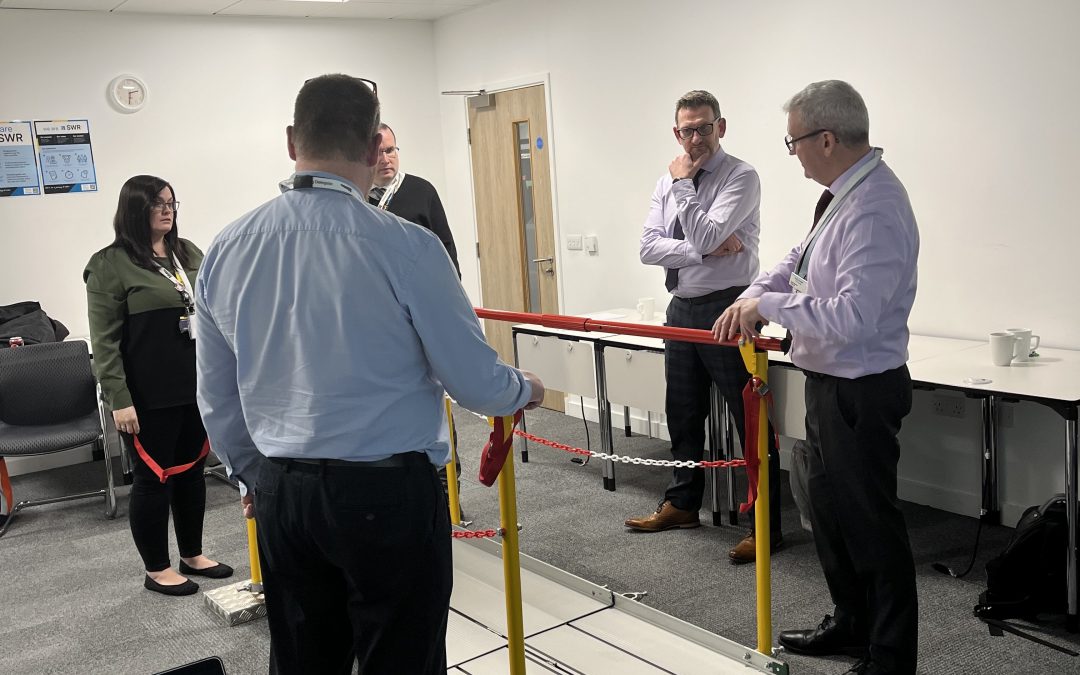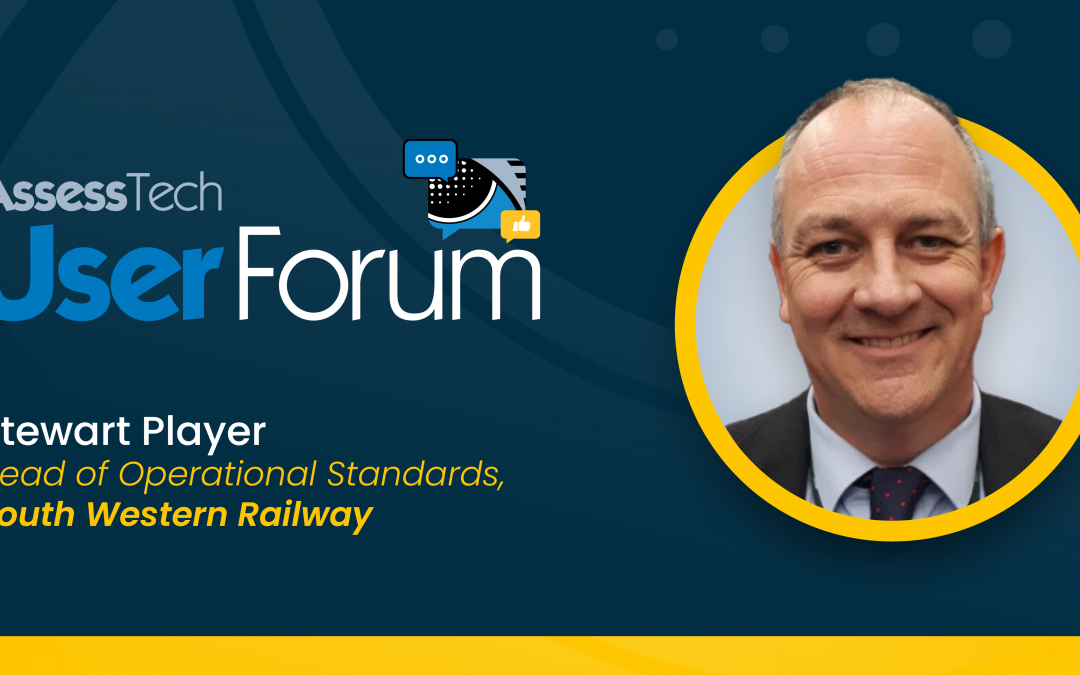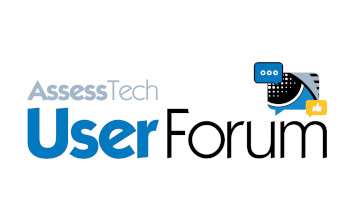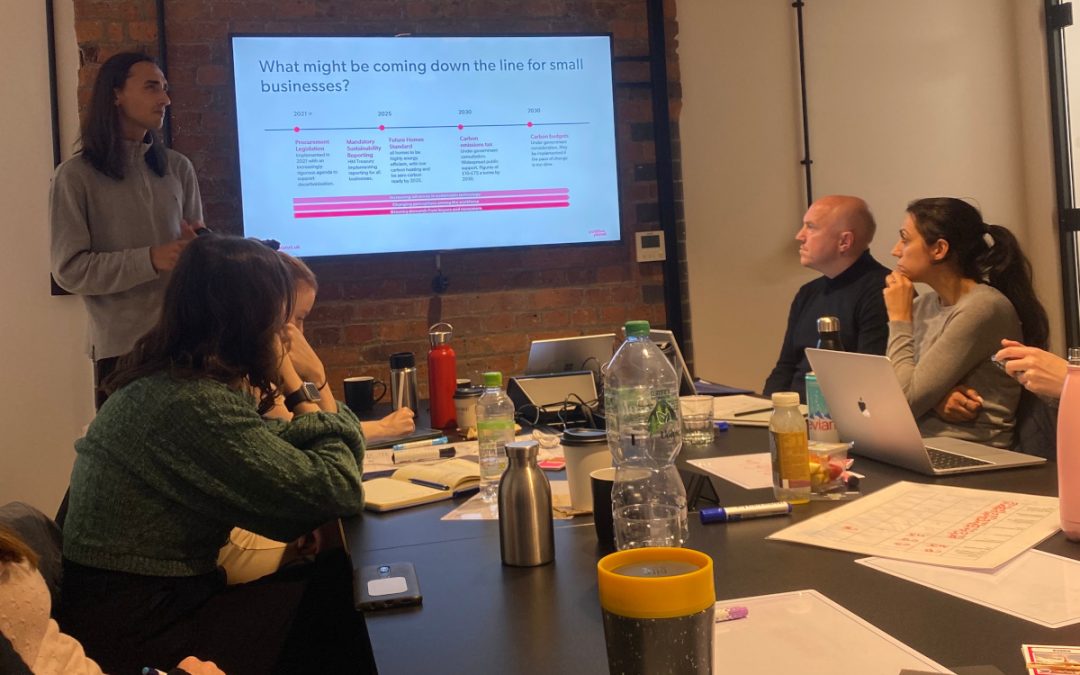Developmental Competence – a winning formula
Developmental competence is about taking ownership of your own competence.
Finding time and headspace to develop your own learning can be challenging for anyone working on the railway. No one wants to fail an assessment, so how can developmental competence help?
Developmental competence is about taking ownership of your own competence. And for assessors and managers who are mentoring candidates, it provides the tools and guidance to help your staff improve their learning.
The starting point is to understand what your competence level is and how it is measured. If you understand this, you can see what you are expected to do and the criteria for measuring this. So, for safety critical elements for example, it is understanding what you are responsible for.

South Western Railway assessors performing an assessment on the aAssess app.
The most important element of developmental competence is providing access to criteria and learning materials so you can learn at your own pace and in your own way.
When you understand this, you can then access the learning materials and ask the right questions around what you need to learn. And once you have read and digested the learning materials, you can ask further questions from an experienced person or a mentor and compare performance criteria to those learning materials.
Organisations need to ensure they make the performance criteria for their staff accessible so they can demonstrate what good looks like around behaviours and knowledge. They should be encouraged to reference the criteria for the learning, so candidates can find the information easily, removing any barriers and make learning for individuals as easy as possible.
Candidates can then match the areas they are being assessed in against the criteria and find the learning materials quickly and easily. This ultimately improves an individuals’ own competence levels.
Developmental competence benefits everyone. If you are new to the organisation, this will give you a good foundation from which to ask questions of your mentor/assessor and if you are an existing member of staff, this will provide you with a good underpinning knowledge. Assessors will then be open to your questions to explore the criteria in more depth.
Assessors should be encouraged to work with you in a nurturing way, helping you learn through planning and breaking your learning down into sections. The 80/20 rule is important whereby the assessor gets 20% of the time to talk, whilst you get 80% of the time. Assessors are encouraged to work with you in a nurturing, developmental way to help you understand why your mistakes have happened, giving you the opportunity to explore via the feedback where you went wrong, and identify ways to make improvements. Using this approach, and writing the assessments in the first person, ensures you take ownership of your own areas of improvement and competence.
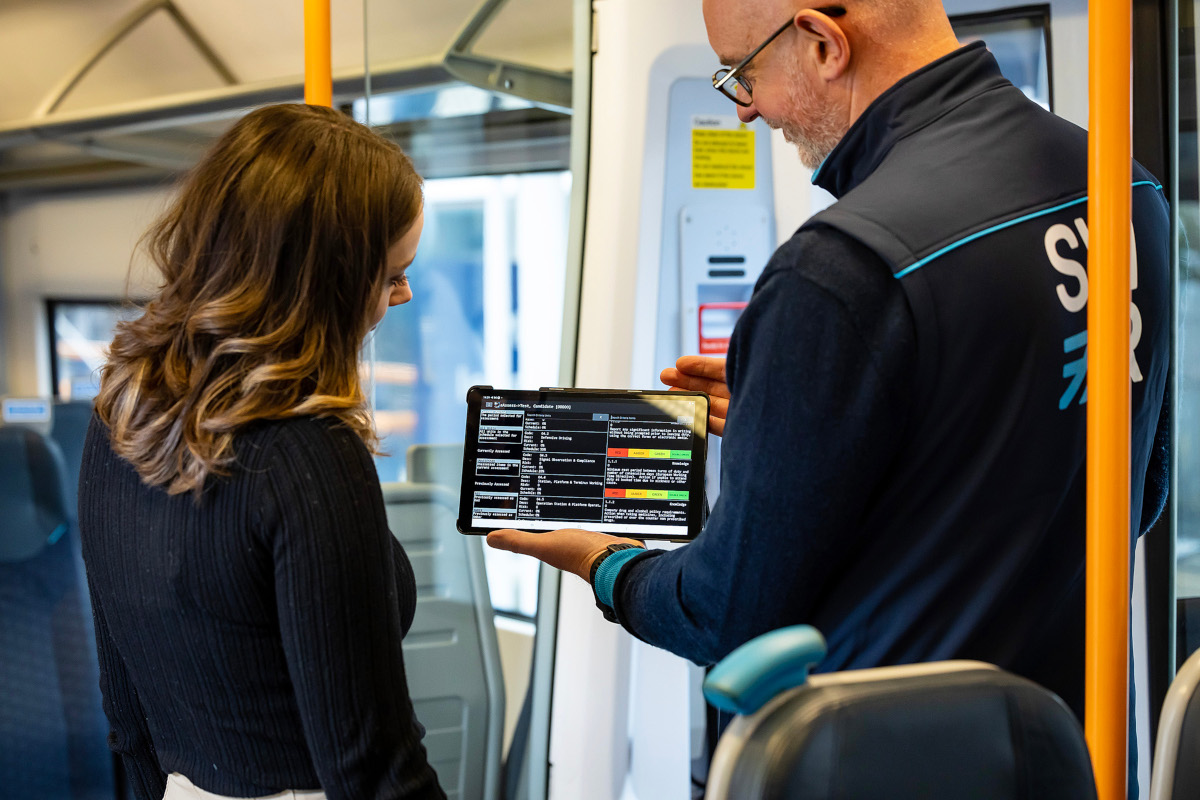
To understand how the developmental competence management process works, read our previous article here.


